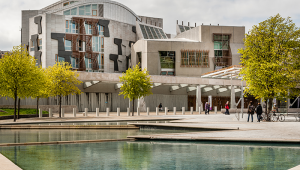22 October 2004
More than half of the 32 Scottish councils are planning to increase their council tax bills by 5% or more next year, according to provisional figures.
These show that First Minister Jack McConnell's recent assertion that there was no need for increases above 2.5% 'looks optimistic', the Scottish Parliament's budget adviser, Professor Arthur Midwinter, told Public Finance.
He added: 'The funding settlement, combined with the requirement to make efficiency savings, will put pressure on both services and taxes. More than half of the councils already have indicative increases of 5% or more planned under the 2002 settlement.'
The three-year budgeting process in operation in Scotland requires councils to produce 'indicative' council tax figures for the period.
When details of the Scottish Spending Review were announced by former finance minister Andy Kerr two weeks ago, Midwinter warned that the local authority spending provision was the lowest of all the major expenditure programmes and that council tax increases were likely to be in excess of inflation.
However, McConnell countered that there was 'absolutely no basis, no reason whatsoever in the settlement announced… for council tax increases to be above 2.5%'.
Midwinter said this week that figures contained in the recent Rating Review, published by CIPFA in Scotland, showed that 18 of the 32 councils had produced indicative figures for next year showing increases of 5% or more.
The lowest increase (3%) was in Dumfries and Galloway while the highest were in Shetland (6.7%) and Scottish Borders (6.4%). 'These show the average to be well above the 2.5%,' Midwinter said.
He added the grant increase for local government was about 2% below the Scottish average for spending programmes and was about 1% less than the figure for England.
Following the publication of the Spending Review, the Executive produced its detailed budget on October 15. It was met with controversy over a decision to 'quietly' drop or change key targets on health, crime, jobs and the arts.
However, the Executive's decision was principally in response to a call by the Parliament's finance committee to abolish targets that were 'meaningless' or inappropriate. A spokeswoman said it was not something they had tried to hide.
PFoct2004



















